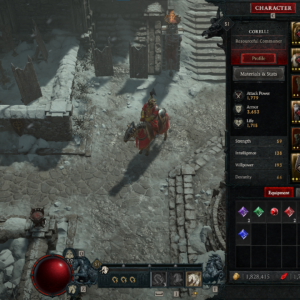
TORONTO — “We want society to take to the streets and demonstrate,and we hope that during those demonstrations, you mention that we are still missing 43 students!” That was part of the message Jorge Luis Clemente Balbuena delivered to an audience of about 70 people at the Library Lecture Theatre of Ryerson University on April 29. “That’s the best kind of support you can give us.”
Clemente Balbuena, 21, is one of few survivors of the attack the local police opened on a group of Ayotzinapa students in the state of Guerrero, Mexico, last September 26. The attack left six students dead, more than 20 wounded, and 43 forcibly disappeared. They have now collectively become the face of the corruption that smears every level of the Mexican government- which essentially allowed this to happen.
Clemente Balbuena is also a spokesperson for his missing classmates, currently travelling through the Great North with the Ayotzinapa to Ottawa Caravan. Along with Hilda Legideño Vargas (mother of one of the disappeared students), and Isidoro Vicario (an indigenous lawyer), the three are making their way across Canada, telling people what exactly happened. They want to make sure no one forgets that, in Mexico, there “isn’t safety for its inhabitants,” as they plead with our government to remove that nation from its ridiculous safe country list – or Designated Country of Origin, by its official name.
“Ayotzinapa is a representative case because it shows the collusion that exists between public servants and organized crime,” said Vicario, coordinator of the Legal Department of the Tlachinollan Centre for Human Rights. “In Mexico there are extra-judicial killings, illegal detentions, and other crimes perpetrated by public officials. Mexico cannot remain in the list of safe countries.”
The tour began with a public forum on April 12 in front of the Mexican consulate in Vancouver, where they met public officials and native leaders who expressed their support. They even reached the Parliament, where they spoke to members of all political parties about the almost impossible reality of their lives.
“We are constantly attacked by the repressive forces of the state. Whether it’s the riot, state, or military police who tries to beat us and take us to jail is no longer surprising; it’s daily life,” Clemente Balbuena told us. He’s one of many Mexican students who survives daily violent harassment and repression at the hands of Mexico’s security forces.
“But to kill six of our friends and disappear another 43 – the state’s forces have now gone too far,” he added with an intense directness into the microphone.
As tends to happen, the September 26 attacks were covered in the most sensational and superficial of ways. It wasn’t long before the country’s president, Enrique Pena Nieto was throwing Iguala’s mayor and his wife under the bus as the sole masterminds behind such heinous collusion with a drug/crime cartel known as the ‘Guerreros Unidos’ (‘united warriors’). The CBC last reported on it in November of last year.
The Mexican government contends the students are dead and would like the matter laid to rest. But contradicting accounts of how they died, coupled with well-documented cases of corruption, is more than enough to brew mistrust in the students’ families.
“The government claims it was organized crime that took our kids, but, unfortunately- as the few survivors witnessed- it was the municipal police, with the help of the military and public officials, who did it,” said Hilda Legideño Vargas, mother of Jorge Antonio Tizapa Legideño- one of the missing students. “So, it was the government that took them- even if they claim otherwise.”
In 2014, America’s Policy Group, a coalition of volunteer workers focused on human rights violations and social justice issues, penned a letter to then Minister of Foreign Affairs John Baird. In it, the organization laid out a clear picture of historical corruption, impunity and collusion between Mexican public officials and drug cartels.
Indeed, official reports estimate more than 22,000 people missing nationwide, with more than 10,000 disappearances since President Enrique Peña Nieto took office in 2012 – amid accusations of electoral fraud.
Mainstream media has played a large role in keeping civil society in the dark about what is really happening. At every turn, it has failed to report on the rampant state corruption and violence. Instead, it has chosen to point to the drug cartel problem as the main source of violence and national instability, thereby absolving the state of any real responsibility.
In many occasions, the media has done nothing but give President Nieto a platform which he uses to skillfully evade responsibility, while putting forward a carefully-worded script of national unity and economic progress.
Wonda Jamieson- a Mohawk of the Bear clan originally from Six Nations- was also at Ryerson to share the painful story of her mother’s murder as a sign of solidarity with the disappeared and the families that continue to wait for their return.
Jamieson also pointed out that, when it comes to protecting Human Rights, Canada isn’t much better than Mexico- evidenced by the epidemic of missing and murdered indigenous women and the general plight of the native population.
The Ayotzinapa to Ottawa Caravan plans to travel the world to spread this message and to implore us to maintain the memory of their kids alive. The Caravan has been in Europe, the U.S. and Canada, and is planning trips to Brazil, Argentina and Uruguay.
“They are part of our lives; a piece of our own being, so we will continue to fight until we find them,” concluded Hilda Legideño Vargas in a soft, though resolute tone. “They were taken alive, and alive we want them back!”






